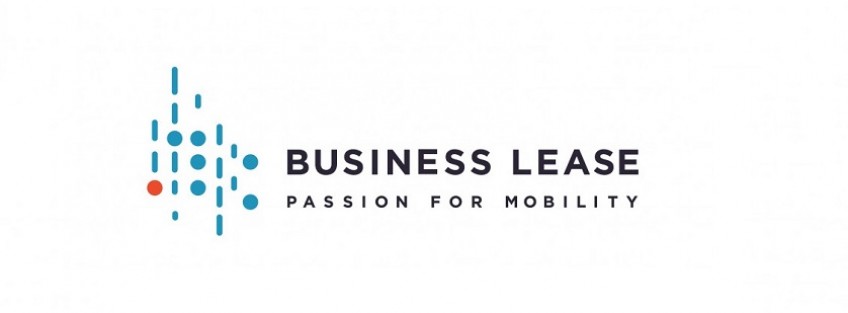Mobility News by Business Lease - February 2022
Mon | 28.02.2022
Operational Leasing
More shortages ahead? Russia’s invasion is pilling new challenges onto the world’s already battered supply chains
Natural disasters impact the supply chain. COVID-19 has impacted the supply chain. Believe it or not, the war in Ukraine is also going to impact the supply chain
The war has already caused the shutdown of car factories that rely on components made in Ukraine and affected the supplies for the steel industry. It has changed air passages and land routes that have become crucial since the pandemic. The conflict also put on hold Ukraine and Russia’s commodity exports, and the price of oil, natural gas, wheat, and sunflower oil has increased.
Semiconductor chips have been in short supply causing vehicle production issues for more than a year now. At the beginning of this year, we were quite optimistic and forecasts estimated the recovery of the full-scale production by 2023. But in the light of the new events, this goal of normalcy is no longer reachable. From the chip production perspective, Russia’s role isn’t very big, but Russia supplies more than 75% of the neon gas used to make the chips. Without it, semiconductor production will be again on hold and we’ll get back to the early stages of the pandemic.
We may have no problem today, but it’s probably too early to reach that conclusion. What is certain is that the war and all the bans will not affect only Ukraine and Russia, but the entire world. So, we need to prepare.
What to expect in the automotive industry?
Global semiconductor crisis will worsen
Russia mines over 40% of the world’s palladium primarily used in catalytic converters, a key component of internal combustion engines aimed to reduce vehicle emissions, as well as around 11% global nickel production used in stainless steel and electric vehicle batteries production and 4% of the world’s cobalt, another battery ingredient. The disruption of supplies from Russia and Ukraine will definitely take its toll on global semiconductor production and will have a direct impact in the price of the new cars.
As Ukraine-made components are no longer available, car companies are forced to plot out alternative routes
Two car factories in Germany that rely on components made in Ukraine have already been shut down and Leoni Ukraine, producing wire systems that are shipped to European carmakers, also shut down their 2 facilities. Car companies that depend on parts from China and Eastern Europe are now looking for alternative routes and even the companies for which Ukraine is not central to their supply chain, will soon discover that when this part is missing, it actually is.
Car prices might be approached from a different perspective
Since the pandemic rolling factory closures due to components shortages have become the norm, and, as output remains critically low, automakers are more and more interested in seeing how to maximize margins on the vehicles sold.
There is no doubt that the war will cause major disruptions in the supply chains, but considering the fact that they have been facing these shortages since 2020, they will more than sure take into account the merits of leaner inventories. Companies need to make their networks more resilient and many of them are thinking about layoffs and finding ways to optimize their profit by reducing corporate bloat, ideally while manufacturing fewer cars.
Operational Leasing solutions can help in these times of uncertainty
What is happening now is that due to the long delivery terms and lack of available cars, more and more car dealers are asking for a down payment to reserve the car which is not going to be the case with operational leasing where you pay just a monthly fee.
In case of urgent mobility needs, operational leasing can offer a pre-leasing car until the new car arrives.
Furthermore, this service offers the highest guarantee and protection on costs by monitoring all costs and taking actions in case any deviations occur, by negotiating and keeping all costs associated with the use of the cars (road assistance, insurances, maintenance, spare parts, maintenance labour hours etc.) as low as possible and it also assures a higher resale value (and as a result a lower monthly depreciation for you) by focusing on the acquisition of cars to brands and car models with certain specific minimum equipment per each class.
This article was provided by our Mobility Partner, Business Lease Romania.
2025
-
November (1)
-
October (1)
-
September (1)
-
July (1)
-
June (1)
-
April (1)
-
February (2)
-
January (1)
2024
-
November (1)
-
October (1)
-
July (1)
-
May (1)
-
March (1)
-
February (1)
-
January (1)
2023
-
November (1)
-
September (2)
-
August (2)
-
June (1)
-
May (1)
-
April (2)
-
March (1)
-
February (2)
-
January (2)
2022
-
December (3)
-
November (4)
-
October (3)
-
September (4)
-
August (3)
-
July (6)
-
June (4)
-
May (4)
-
April (8)
- Marketing News by diARK - April 2022
- Finance News by Mazars Romania - April 2022
- Experience the Perfect Chauffeur Transfer with David Intercar
- Mobility News by Business Lease - April 2022
- NRCC MEMBER IN SPOTLIGHT, WOLTERS KLUWER
- Crowe Romania and DeclaratiaUnica.ro engage in the automation of the single return form and the offering of personalized consultancy
- Cryptocurrency News by Bitcoin Romania, April 2022
- Legal News by BBW LAW - April 2022
-
March (6)
-
February (4)
-
January (5)
2021
-
December (3)
-
November (4)
-
October (2)
-
September (2)
-
August (1)
-
July (5)
-
June (3)
-
May (5)
-
April (4)
-
March (7)
- Cryptocurrency News by Bitcoin Romania, April 2021
- HR News by CNA International Executive Search Romania, March
- Real Estate News by CTP Invest, March 2021
- Sale-Purchase of Agricultural Land Located Outside Build-Up Areas
- MEET THE NRCC BOARD CANDIDATES 2021
- Fleet Management – Complete Makeover or Small Adjustments?
- Cryptocurrency News by Bitcoin Romania, March 2021
-
February (5)
-
January (6)
2020
-
December (2)
-
October (2)
-
September (3)
-
August (2)
-
July (6)
- NRCC Member in Spotlight Interview - Autonom
- Insolvency Proceedings: New Rules
- Member in Spotlight, UniCredit Bank
- Financing opportunities overview for large enterprises, SMEs and other organizations
- Companies: Simplification of Formalities
- Call for Leaders | What is your readiness score to benefit from the EU SURE initiative?
-
June (5)
-
May (8)
- The State of Alert. New rules for the collective proceedings
- The Retail Industry
- EU grants up to 6 Mil Euro for SME-s investment projects
- Member in spotlight, Heisterkamp Transportation Solutions
- State of Alert...What Is New
- The forced transformation of the automotive industry – Mazars analysis
- State of Alert in Romania
- Reducing the Impact of the Pandemic
-
April (6)
-
March (2)
2019
-
November (2)
-
July (1)
-
June (1)
-
March (2)
-
January (1)
2018
-
October (2)
-
September (1)
-
August (1)
-
July (3)
-
June (2)
-
May (1)
-
April (1)
-
March (3)
-
February (13)
- NRCC Elections 2018 - Elena Badea
- NRCC Elections 2018 - Loreda Dragomir
- NRCC Elections 2018 - Simina Fodor
- NRCC Elections 2018 - Manuel Herraiz Orti
- NRCC Elections 2018 - Tom Leene
- NRCC Elections 2018 - Mircea Moga
- NRCC Elections 2018 - Ronald Oort
- NRCC Elections 2018 - Razvan Pascu
- NRCC Elections 2018 - Alexandru Popescu
- NRCC Elections 2018 - Mihaela Tudor
- NRCC Elections 2018 - Loredana Van de Waart
- NRCC Elections 2018 - Edwin Warmerdam
- NRCC Elections 2018 - Philip Aarsman
2017
-
November (1)
-
September (1)
-
August (2)
-
May (1)
-
April (2)
-
March (1)
2016
-
November (1)
-
September (8)
-
June (1)
-
February (2)








